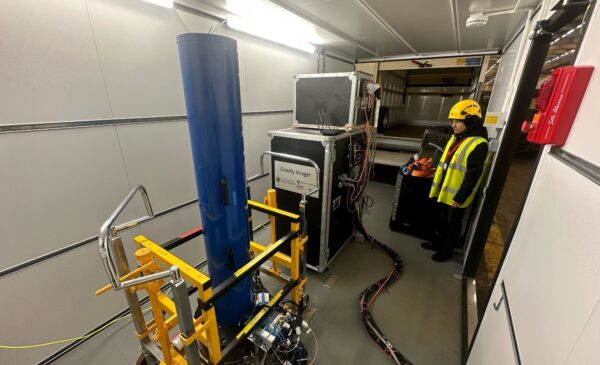A ground-breaking new project spearheaded by UK Quantum Technology Hub Sensors and Timing researchers at the University of Birmingham and the National Physical Laboratory (NPL) will see a fibre optic cable installed underneath the University’s campus, connecting all the way through to NPL’s head office in Teddington, south-west London. This project will mark the first time a fibre optic cable network for precision timing has been extended to such a large area in the UK, paving the way for resilient, highly accurate synchronisation for the future.
Known otherwise as dark fibre, this fibre optic network will essentially be an independent connection that will uniquely use optical amplifiers to simultaneously boost multiple signals, which typically deteriorate every 80 km. Hub researchers are deploying single amplifiers as opposed to placing multiple amplifiers at the same location to prove that performance is not affected by this method, a solution that will save significant time and money.
This network will test both performance and resilience in time and frequency transfer, which would have significant impact on a number of sectors, such as finance and defence. Fibre link technology can only be interfered with if it is physically cut, which would take considerable resource compared to satellite signal spoofing and hacking. Fibre optic cables are also much less susceptible to interferences, as the data is concentrated within the fibre itself. Accuracy is also expected to measure a hundred times more precise than our current national time network.
Researchers will test the possibility of using fibre link networks to support GPS networks in the future. This will represent a step-change in the technology that underpins our current communications network, which in turn is the foundation for many services which make up the UK’s critical national infrastructure, such as hospitals, transport and utilities.
The network installation, which will be carried out by Jisc, is currently underway and is scheduled to be completed by October 2021. The network will initially be available for three years, with the potential to become permanent.
“This technology has already been tested in Paris, and I’m excited about the Hub taking the first step in establishing a UK-wide time and frequency distribution network.”Dr Jochen Kronjaeger, NPL
“This is a unique opportunity to assess new, interdisciplinary technology with NPL’s world-leading experts. Timing advancements may take years to result in real-world system changes, but this new project represents a step forward to fast, secure systems.”Dr Michail Antoniou, Quantum radar and timing Hub lead




